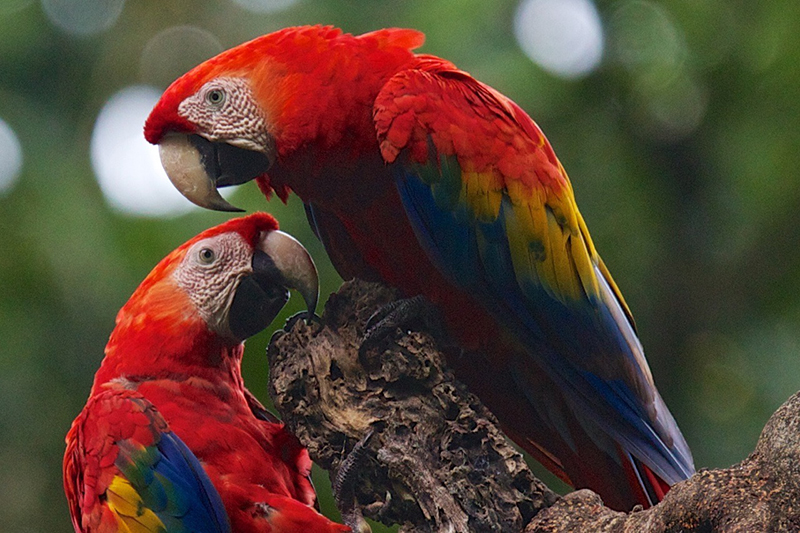Texas A&M Develops New Vaccine To Combat Lethal Disease Affecting Captive Parrots
COLLEGE STATION, Texas – Researchers at the Texas A&M; College of Veterinary Medicine & Biomedical Sciences (CVM) have developed a highly effective vaccine against a lethal virus disease of captive parrots. The disease, called Proventricular Dilatation Disease (PDD), results in blindness, heart failure, or intestinal blockage. It is caused by a virus called Avian Bornavirus. Use of the vaccine against this virus prevented the development of disease in captive birds with no obvious adverse effects.
 The investigators-Drs. Ian Tizard, Jianhua Guo, Susan Payne, and Samer Hameed-work at the Schubot Exotic Bird Health Center at the CVM. The research was supported by the Schubot Center and the college. The center is dedicated to conducting research that will improve the health and quality of life of both captive and wild birds. While currently focusing on diseases of parrots, investigators at the center are also studying diseases of water birds, quail, and cranes.
The investigators-Drs. Ian Tizard, Jianhua Guo, Susan Payne, and Samer Hameed-work at the Schubot Exotic Bird Health Center at the CVM. The research was supported by the Schubot Center and the college. The center is dedicated to conducting research that will improve the health and quality of life of both captive and wild birds. While currently focusing on diseases of parrots, investigators at the center are also studying diseases of water birds, quail, and cranes.
“Proventricular Dilatation disease is an especially nasty infection that kills large numbers of captive birds each year,” said Dr. Ian Tizard, the project leader. “Parrot owners are naturally very distressed when their beloved pet dies in such a manner. The new vaccine is expected to stop the development of this disease and prevent much suffering.”
The next step in the development of this vaccine will be to seek USDA licensure and then to manufacture the vaccine commercially. This will require extensive field-testing to ensure that the vaccine is safe and that it is effective in many species of pet birds. Thus it will take some time before the vaccine becomes available to parrot owners. Current plans are to market the vaccine through avian veterinarians.
The pace of the additional studies will naturally depend upon the resources available. Current resources are limited, so it is difficult to state when this vaccine will be available to parrot owners.


